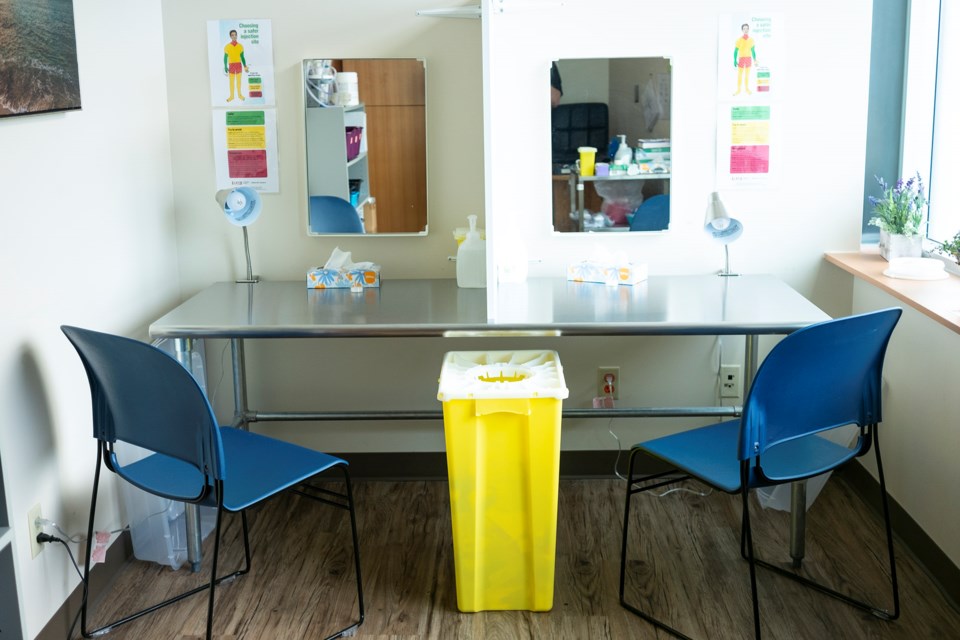Wellington Guelph Drug Strategy is “deeply disappointed” after hearing the provincial government’s plan to close Guelph’s Consumption and Treatment Services (CTS) along with others in the province.
“The forced closure of the Guelph CTS will not prevent people from using substances. It will not solve the issues we are seeing in our community, and it will not prevent deaths. Closures of this life-saving service will directly lead to higher numbers of fatalities, public substance use and EMS calls,” stated in a WDGS news release.
There are 10 consumption sites in Ontario that will have to stop providing services like supervised safe consumption, safe supply and needle exchange by the end of March. This was announced at yesterday’s Association of Municipalities of Ontario (AMO) conference in Ottawa by Ontario Minister of Health Sylvia Jones.
Guelph Community Health Centre’s CTS at 175 Wyndham St. are one of the affected sites due to its proximity being within 200 metres of a daycare or school.
With the closure of the sites the provincial government has decided to put $378 million toward 19 new Homelessness and Addiction Recovery (HART) Hubs.
The HART hubs aim to provide treatment including primary care, mental health and addictions care, social services, employment support, increased availability for shelter beds and supportive housing and other supplies and services like Naloxone, showers and food, said Jones during her speech at AMO.
“I want to be clear, they will not provide safe supply, supervised drug consumption or needle exchange programs,” said Jones.
This decision “... will lead to an increase in health harms, illness and deaths,” said in the WGDS release.
In 2023, Guelph and Wellington “lost at least 62 community members to substance-related fatalities. This is the highest number of lives lost on record,” said in the release.
“Across Ontario, someone dies from drug poisoning every 2.5 hours. In a time of intensifying drug toxicity, we need every tool we have to save lives - not closures and restrictions,” continued in the release.
WGDS encourages the government to consult with those who are most impacted by the government’s service development and legislation like people who access substance use services, health care providers and drug strategies in the province.
There is concern over the human rights impacts of closing Guelph’s CTS and by “removing this life-saving service from the community, without providing a comparable alternative,” said Melissa Kwiatkowski, CEO of Guelph Community Health Centre, in a press release.
“We know that the CTS in Guelph saves lives and connects people to vital addictions treatment services, mental health services and primary care services,” she said in the release.
Since the information is new to Guelph CHC it needs time to understand the details of the government’s decision and the impacts on the community before it can comment.
Guelph CHC plans to meet with the Ministry of Health to get an understanding of its options and develop a “plan to ensure continued access to low barrier mental health and addiction support,” said in the release.
Some of the services Guelph CHC has already been offering align with the Ministry of Health’s plan. It feels it is well positioned to submit an application for the hub model with its health partners.
Applications for the government’s HART Hub model close in October.
